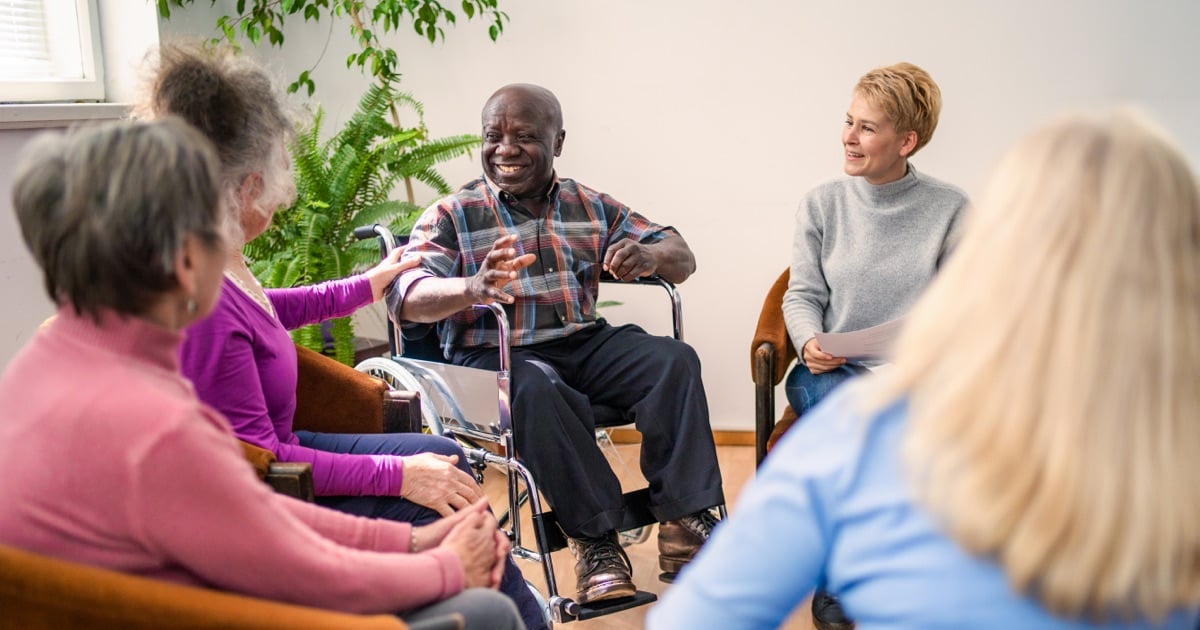5 Things to Look for When Considering Parkinson's Care
Christine Kelly | Feb 8, 2023
Individuals with Parkinson’s disease often have difficulty accessing appropriate, comfortable care. Most Parkinson’s patients in the Midwest receive care from a few specialized clinics around the Twin Cities. Unfortunately, not all these providers can access the most effective therapies or current practices.
Because Parkinson's affects each individual differently, the course of the disease varies, and symptoms come and go erratically. That's why finding specialized and tailored treatment is a must. If you're seeking the best Parkinson's caregiver, here are five things to consider when weighing your options.
1. Physical therapy

Physical therapy is a crucial aspect of Parkinson's care as it can help manage the symptoms and improve the quality of life of those affected by the disease. Physical therapy can help by:
- Improving balance and reducing the risk of falls
- Improving posture and gait
- Increasing strength, flexibility, and range of motion
- Improving fine motor skills and coordination
- Decreasing muscle stiffness and rigidity
By regularly participating in physical therapy, individuals with Parkinson's can maintain their independence and physical function and potentially slow the progression of the disease. That’s why finding a care facility with physical therapy and fitness programs is important.
2. Mental health specialist

It is vital to have a mental health specialist at a Parkinson's care facility because people with Parkinson's may experience emotional, psychological, and physical symptoms.
A mental health specialist can help address and treat depression, anxiety, sleep disorders, and other psychological issues resulting from Parkinson's. They can also provide support and resources to help patients and their families cope with the emotional and social impact of the disease.
Access to a mental health specialist can help improve the overall quality of life for people with Parkinson's and aid in managing the disease.
- Parkinson's disease can impact a person's mental and emotional well-being, leading to depression, anxiety, and other mood disorders.
- The symptoms of Parkinson's, such as tremors, stiffness, and difficulty with movement, can be distressing and cause feelings of frustration and low self-esteem.
- Mental health specialists can provide counseling, therapy, and support to help patients and their families cope with the emotional and psychological impact of Parkinson's.
- Mental health specialists can also work with patients to manage related behavioral and sleep issues.
3. Neurologist

Having a neurologist at a Parkinson's care facility ensures that patients receive the specialized care they need to manage their condition.
A neurologist can accurately diagnose Parkinson's and provide the necessary medical treatment to manage its symptoms, such as prescribing medications to control tremors and improve mobility. Additionally, a neurologist can monitor the progression of the disease and adjust treatment as needed.
Neurologists also work with healthcare professionals, such as physical and occupational therapists, to provide comprehensive and coordinated care for people with Parkinson's.
4. Struthers Partnership

The Struthers Parkinson's Center is a non-profit organization dedicated to improving the lives of people with Parkinson's disease through exercise and rehabilitation. They offer various services, including physical therapy, occupational therapy, speech therapy, and support groups. They also provide education and resources to help people with Parkinson's and their families better understand the disease and its impact.
Struthers partners with a network of healthcare providers and organizations to offer comprehensive nursing care for Parkinson's disease. Receiving care from a Struthers partner ensures you get the best quality care from a knowledgeable team of experts.
5. Support groups

Parkinson's care facilities that offer support groups ensure nobody has to fight alone. Being involved in support groups provides individuals with Parkinson's a sense of community and support, along with practical information and resources that can help improve their quality of life.
Here are some ways support groups can benefit Parkinson's treatment:
-
Emotional Support: People with Parkinson's can feel isolated and alone as they deal with the physical and emotional effects of the disease. Support groups provide a community of people who understand what they are going through and offer emotional support.
-
Coping Strategies: Support groups offer a safe and supportive environment where members can share coping strategies and techniques for managing Parkinson's symptoms.
-
Education and Information: Members of support groups can share information about Parkinson's and the latest treatments, medications, and therapies to make informed decisions about their care and treatment options.
-
Reduced Stress: Support groups can help reduce stress and anxiety by providing a sense of community and social support.
-
Improved Quality of Life: People with Parkinson's who participate in support groups report enhanced quality of life, increased confidence, and reduced feelings of loneliness and isolation.
Finding community with other residents and caregivers allows participants to learn and share personal struggles, often leading to topic-specific education at future meetings, optimism, and hope.
Parkinson's Care and Support in Minnesota
Each person's experience with Parkinson's is unique. That's why Walker Methodist utilizes an interdisciplinary approach to managing the disease that involves personalized and holistic care programs. We strive to provide the best, most compassionate, and most informed care by paying attention to the details and making the most of every moment.
Not only is our care team better prepared to assist those with Parkinson's, but they can also provide education, resources, and support to residents, their families, and loved ones. In partnership with the Struthers Parkinson's Center, we are pleased to be able to provide expert, specialized Parkinson's care with individual long-term care plans.
To learn more on how to care for someone with Parkinson's or find care and living options at Walker Methodist communities, please contact us today. Looking for resources? Check out these links:

